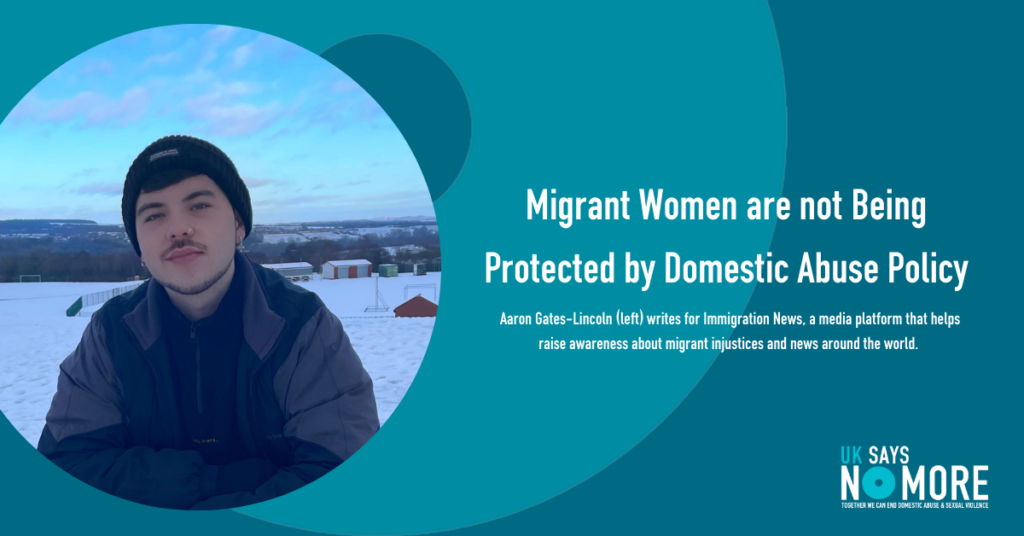
Aaron Gates-Lincoln writes for Immigration News, a media platform that helps raise awareness about migrant injustices and news around the world.
Domestic abuse is a pivotal issue in today’s social climate, and can be exacerbated by policy gaps and poor support systems. After years of development, the Domestic Abuse Bill returned to the House of Lords in the UK on the 8 March 2021 to complete its report stage, one of the final stages before being enshrined in law.
The Bill is expected to completely transform the effectiveness of current responses to domestic abuse throughout a variety of services. Its main features include placing safe accommodation service funding on a statutory footing and outlawing threats of non-fatal strangulation, post-separation abuse and sharing intimate images. It also intends to ban the direct cross-examination of survivors by their abusers in court and will importantly give the first ever legal definition of domestic abuse.
However, the Bill unjustly leaves women with insecure immigration status and No Recourse to Public Funds with little to no protection. Currently, those with No Recourse to Public Funds face barriers particularly in accessing refuge accommodation. This is because they are ineligible to claim benefits which many survivors rely on to financially support their stay in a refuge.
Further explaining the issue whilst in the House of Lords, Baroness Meacher stated, “Migrant women with insecure immigration status are, in my view very understandably, reluctant to report domestic abuse to the statutory services”. This stems from hostile environment policies employed by the government, allowing data sharing between the police and the Home Office for immigration control purposes. This places many migrant women at risk of deportation if they come forward to report domestic abuse.
Meacher stated on this, “This reluctance [to report] is due to the current data-sharing agreements between statutory services, including the police and the Home Office, for immigration control purposes. This means that women affected cannot seek support or a safe place to go, with the most appalling consequences, as one can very easily imagine. Perpetrators are not being brought to justice.’
Studies have found that the number of women deported after reporting domestic abuse has risen from 12% to 30%, showcasing that the fear to report is fully justified. This is worrying, as it reinforces a trend of criminalising the victim of domestic abuse for speaking up, rather than the perpetrator for their actions.
Thankfully, on the 15th March, the House of Lords voted on two amendments to the Domestic Abuse Bill. These amendments aimed to stop the use of data sharing between the police and the Home Office, and would grant migrant women reporting domestic abuse temporary leave to remain and give them access to public funds and services. These amendments were both voted in favour. However, the current Conservative government all voted against the amendments, except from 3 ministers.
The Bill sadly does not cover other issues such as the way benefits are paid to women fleeing abuse. Universal credit is currently paid by default into one account when claimed jointly with a partner. Some argue it instead should be paid separately to each claimant by default, to prevent abusers from perpetrating economic abuse. These issues compound with other blanket issues such as budget cuts to refuge centres, making it hard for migrant women to escape abuse and gain support.
The blind spots in the Bill relating to migrant women are worrying, showing that priority is too often given to upholding hostile environment policies. With the current social conversation focusing on the death of Sarah Everard, and the government’s recent commitment to women’s safety, this proves worrying. This has resulted in migrant women who live within the UK being forgotten, left behind and completely overlooked in a piece of legislation which should be designed to promote the protection of all women.
Although the amendments to the Bill have been added, pressure must still be applied to ensure that they remain within the Bill right through to its final stages. The voices of those that this is impacting must be amplified, and awareness must be spread of the risk that the passing of the Bill could pose if amendments are not made.


